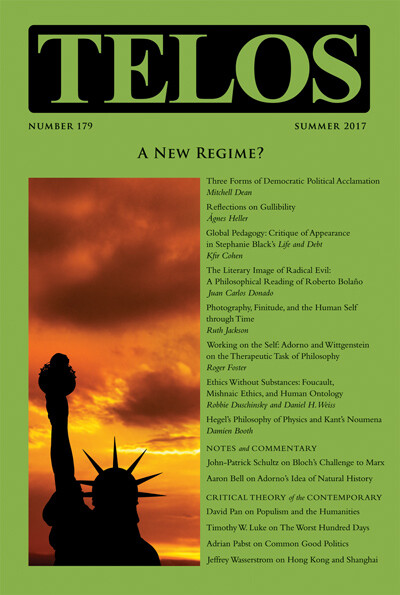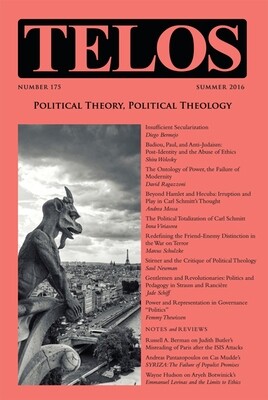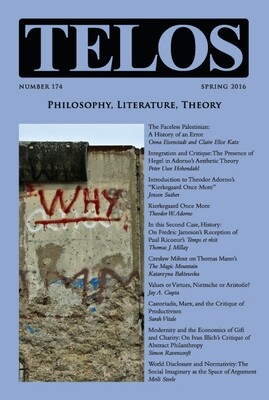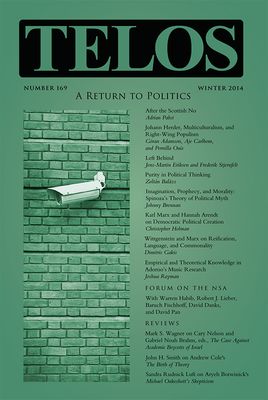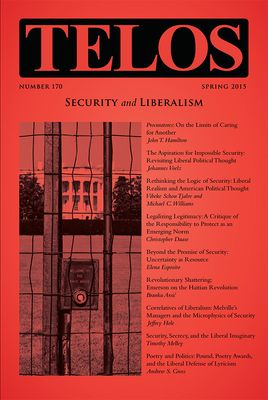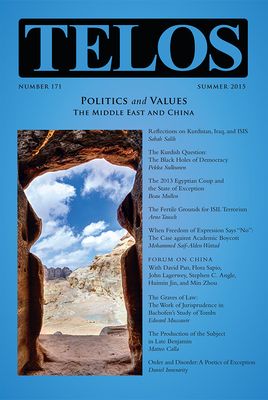Telos 179 (Summer 2017): A New Regime?
A New Regime?
In Critical Theory’s ongoing critique of the contemporary, the paradigms of the totalitarianism of the twentieth century, now invoked with regularity, are not necessarily the most adequate theoretical tools to analyze early twenty-first-century political phenomena. We may very well be entering a different political era, a new regime, and not only in the United States. Can we describe it more effectively? Telos 179 brings together an array of political, cultural, and theoretical analyses, each of which responds to this challenge.
Introduction
Russell A. Berman
Three Forms of Democratic Political Acclamation
Mitchell Dean
Introducing Ágnes Heller’s “Reflections on Gullibility”
Rita K. Laszlo
Reflections on Gullibility
Ágnes Heller
Global Pedagogy: Critique of Appearance in Stephanie Black’s Life and Debt Life and Debt
Kfir Cohen
The Literary Image of Radical Evil: A Philosophical Reading of Roberto Bolaño
Juan Carlos Donado
Photography, Finitude, and the Human Self through Time
Ruth Jackson
Working on the Self: Adorno and Wittgenstein on the Therapeutic Task of Philosophy
Roger Foster
Ethics Without Substances: Foucault, Mishnaic Ethics, and Human Ontology
Robbie Duschinsky and Daniel H. Weiss
Hegel’s Philosophy of Physics and Kant’s Noumena
Damien Booth
Notes and Commentary
Revolutionizing Time: Bloch’s Challenge to Marx in Spirit of Utopia
John-Patrick Schultz
Life in Ruins: Ecological Disaster and Adorno’s Idea of Natural History
Aaron Bell
Critical Theory of the Contemporary
Populism and the Humanities
David Pan
Science at Dusk in the Twilight of Expertise: The Worst Hundred Days
Timothy W. Luke
Common Good Politics and the Renewal of the Left
Adrian Pabst
Hong Kong and Shanghai, 1987–2017: A Convergence, a Reversal, and Two Ironies
Jeffrey Wasserstrom
